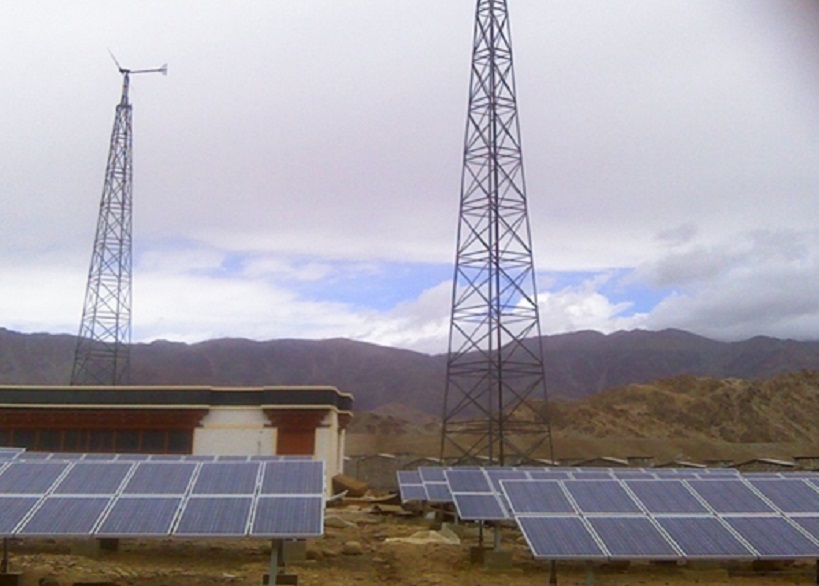Energy Efficiency Services Limited (EESL), under the Ministry of Power, and the Department of New & Renewable Energy (DNRE), Goa, have signed a memorandum of understanding to carry out feasibility studies and implement 100 MW of decentralized solar energy projects in the state.
EESL will implement the projects through its newly formed subsidiary Convergence Energy Services Limited (Convergence).
The decentralized, ground-mounted solar power plants—in sizes of 500 kW to 2 MW—shall come upon vacant/unused land provided by the Gram Panchayats/electricity board. The plants, installed near the substations, will enable Discoms to supply power for agricultural pumping during the day and reduce transmission losses.
EESL shall also replace approximately 6,300 BEE star rated agricultural pumps and distribute about 16 lakh LED bulbs for rural domestic households under the MoU.
Speaking on occasion, union power minister RK Singh said, “The energy sector and the electricity sector, in particular, are transitioning in an unprecedented way. With this program, Goa can avail three major benefits through the reduced burden of subsidy, increased efficiency of products reducing power consumption and reduced burden on the environment. With this initiative, along with the Kusum Scheme, Goa is well on the path of becoming a green state. I congratulate EESL for this innovative business model and hope that other states too come forward to adopt it.”
Nilesh Cabral, Goa’s power minister, said, “Goa is the first state to adopt the concept of amortizing the cost of pumps and LEDs into a PPA. This approach saves us INR 2,574 crore to the State over a period of 25 years, while improving the health of DISCOMs and providing cleaner power at the same time. This project will provide clean day-time electricity to farmers and energy-efficient pump sets that would reduce the power consumption as well as T&D losses associated with transmitting power to agriculture and rural feeder networks.”
Convergence builds upon the decentralized solar development experience in under-served rural communities in India, and over time, using battery energy storage, will deliver renewable energy solutions to power agricultural pumps, street lighting, domestic lighting and cooking appliances in villages. It will also work to enable battery-powered electric mobility and its infrastructure and design business models to increase the uptake of electric vehicles in India.
This content is protected by copyright and may not be reused. If you want to cooperate with us and would like to reuse some of our content, please contact: editors@pv-magazine.com.









By submitting this form you agree to pv magazine using your data for the purposes of publishing your comment.
Your personal data will only be disclosed or otherwise transmitted to third parties for the purposes of spam filtering or if this is necessary for technical maintenance of the website. Any other transfer to third parties will not take place unless this is justified on the basis of applicable data protection regulations or if pv magazine is legally obliged to do so.
You may revoke this consent at any time with effect for the future, in which case your personal data will be deleted immediately. Otherwise, your data will be deleted if pv magazine has processed your request or the purpose of data storage is fulfilled.
Further information on data privacy can be found in our Data Protection Policy.